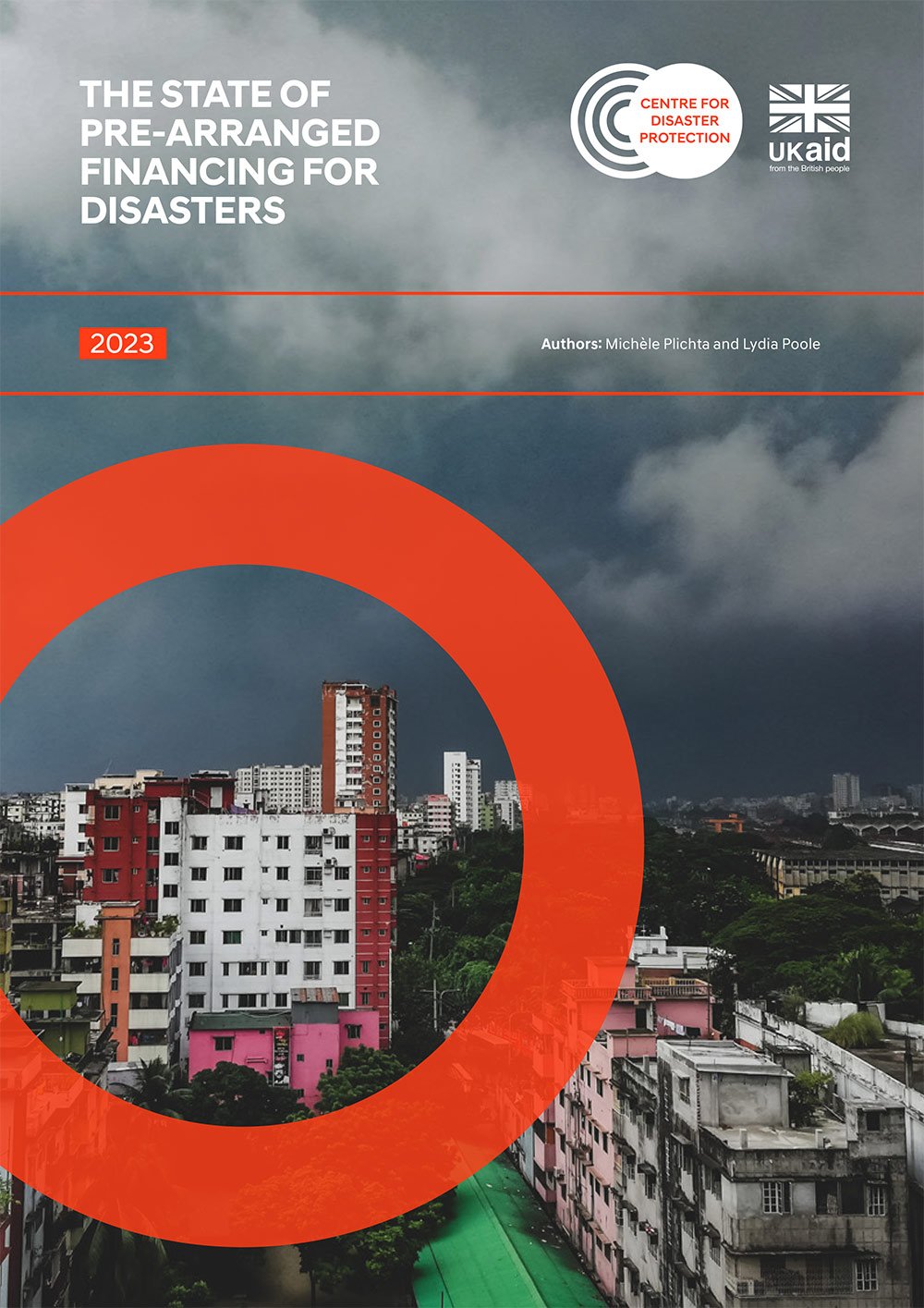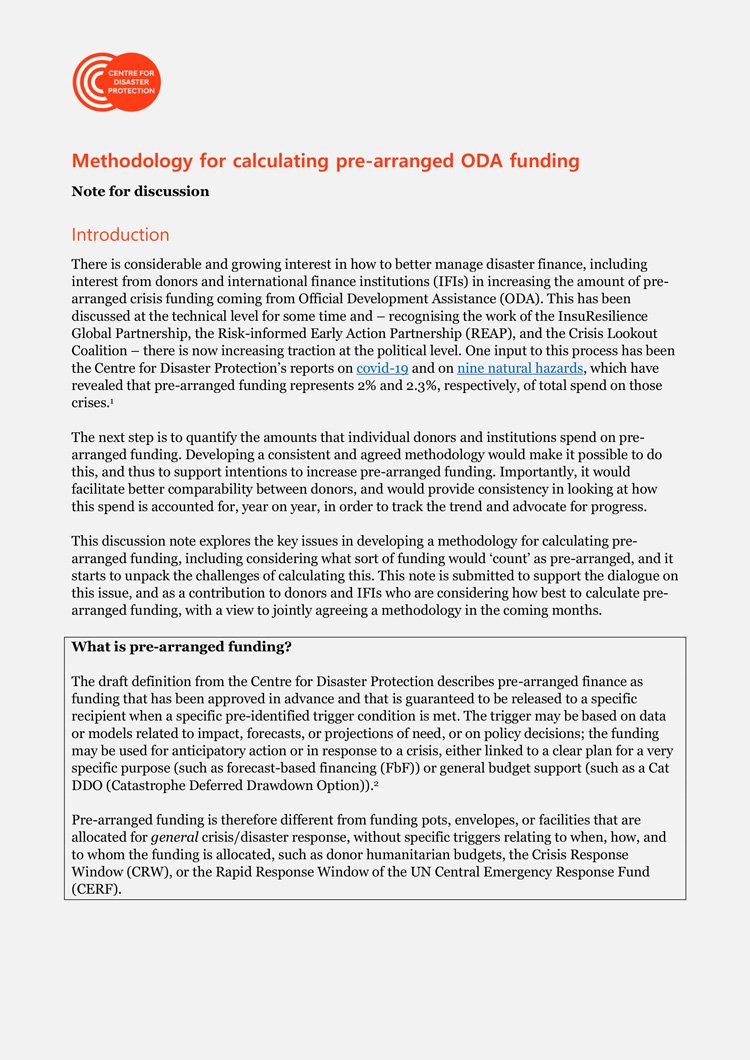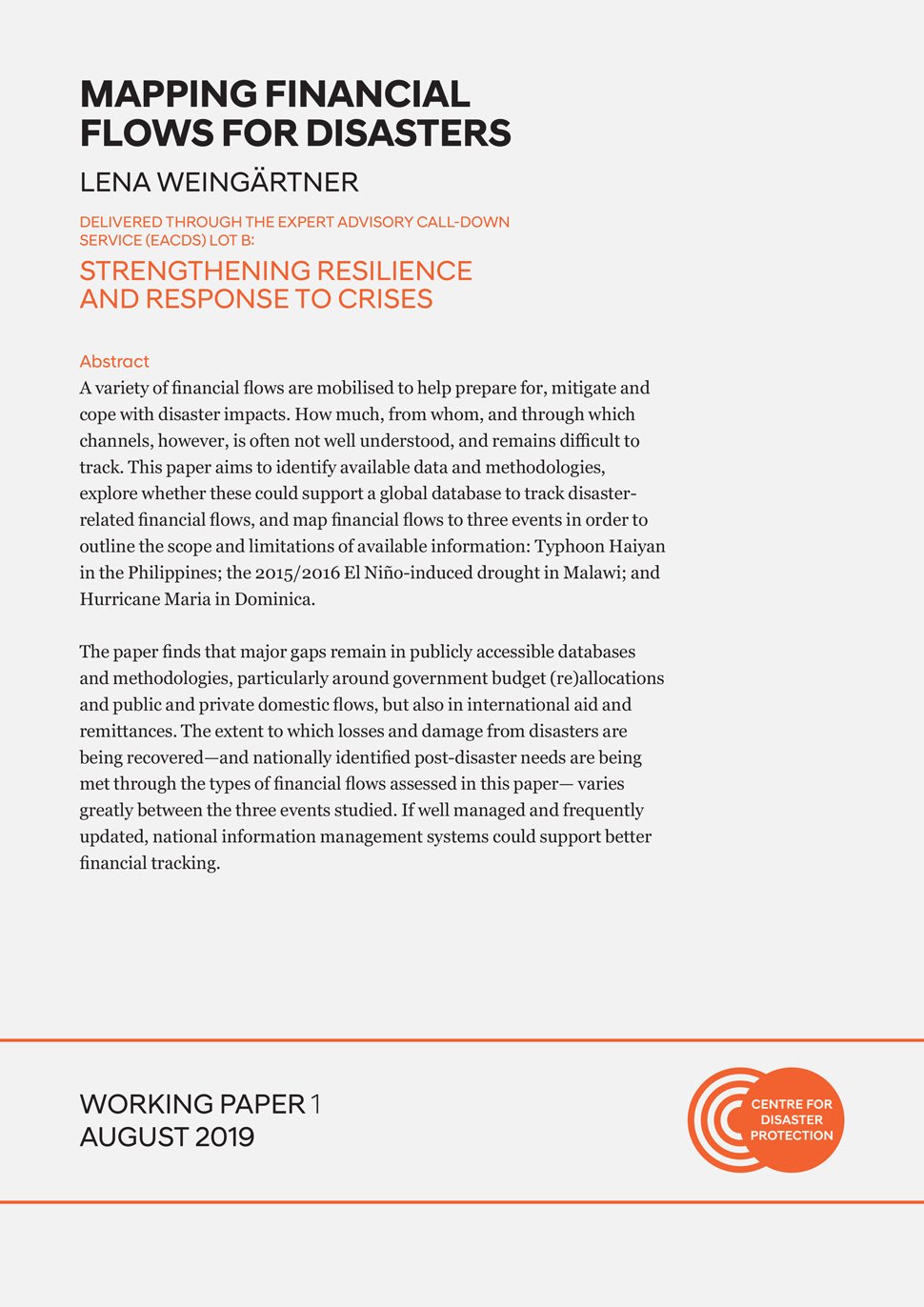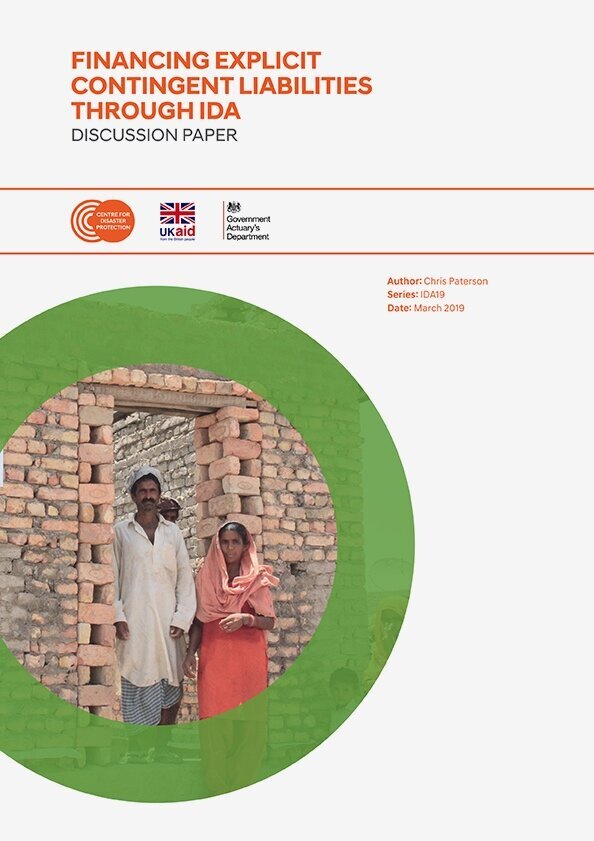FUNDING DISASTERS: TRACKING GLOBAL HUMANITARIAN FUNDING FOR RESPONSE TO NATURAL HAZARDS
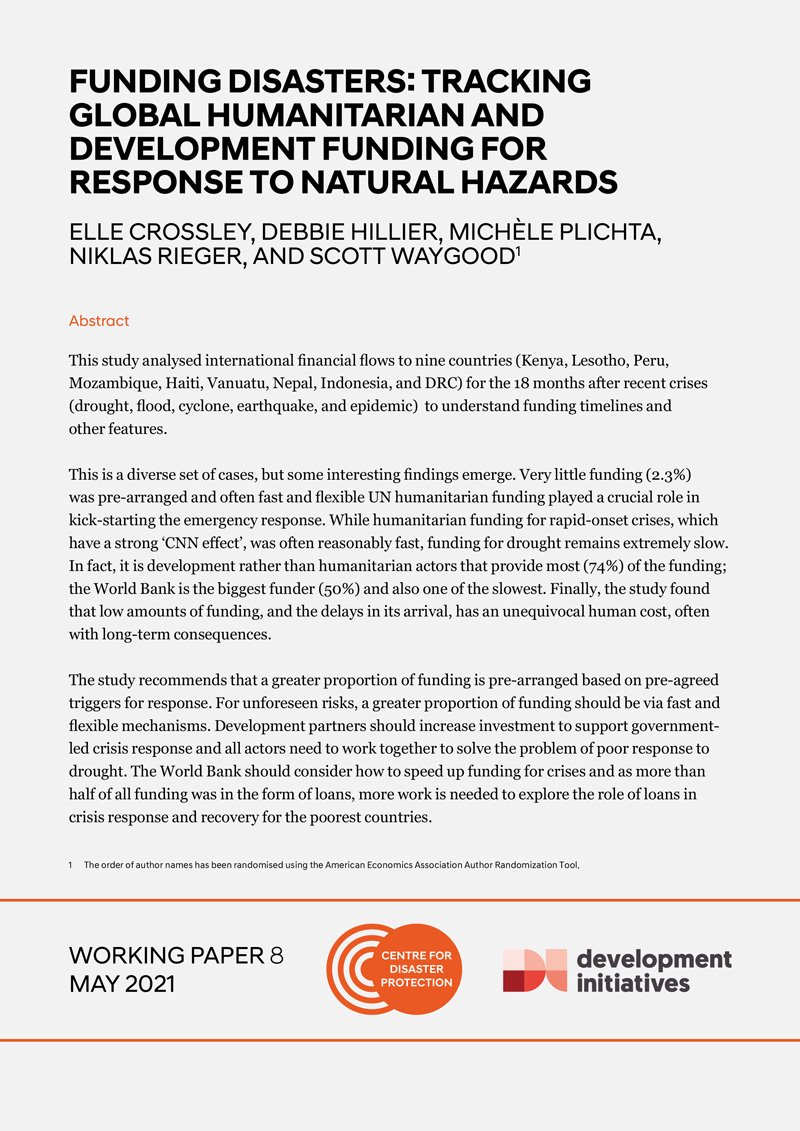
This study analysed international financial flows to nine countries (Kenya, Lesotho, Peru, Mozambique, Haiti, Vanuatu, Nepal, Indonesia, and DRC) for the 18 months after recent crises (drought, flood, cyclone, earthquake, and epidemic) to understand funding timelines and other features.
RELATED PUBLICATIONS
Planning and preparing for shocks pays. Prearranged Financing (PAF) for disasters has the potential to significantly increase the predictability, speed and effectiveness of responses to shocks. Currently, it is unclear how much pre-arranged finance is required to protect crisis-vulnerable people against risk, how much coverage there is in place, and how far we are from achieving adequate coverage, targeted to the right places, for those people most at risk. This data-led report collates the best available data to start to assess and monitor annually the state of pre-arranged financing supported with international development financing in low-and middle-income countries.
We explore the key issues in developing a methodology for calculating pre-arranged funding, including what sort of funding would ‘count’ as pre-arranged, and starts to unpack the challenges of calculating this. This note supports the dialogue on this issue, and as a contribution to donors and IFIs who are considering how best to calculate pre-arranged funding.
The Future of Crisis Financing: A Call to Action sets out a new vision for international crisis financing, based on planned approaches and appropriate financing packages and instruments.
This paper aims to identify available data and methodologies, explore whether these could support a global database to track disaster-related financial flows, and map financial flows to three events in order to outline the scope and limitations of available information: Typhoon Haiyan in the Philippines; the 2015/2016 El Niño-induced drought in Malawi; and Hurricane Maria in Dominica.
This paper charts the evolution of the World Bank’s approach to crisis risk financing. It acknowledges significant progress in recent years, but identifies a number of actions that could be taken to accelerate the proposed ‘pivot to prevention and preparedness’.
This paper proposes an innovative approach to financing contingent liabilities using IDA to purchase a contingent loan with hard triggers, on concessionary IDA terms. The payout is used to buy down the cost of a commercial loan (such as IDA’s Scale-Up Facility) to concessionary IDA terms.
Drawing on examples from around the world, this paper argues that civil society organisations play a vital role in ensuring that crisis financing approaches are designed and delivered effectively. It concludes that in IDA19, CSOs should be more actively engaged in its crisis financing work.
Lessons for IDA from the UK Government’s approach to explicit contingent liabilities. This paper draws on learning from the UK’s Contingent Liability Approval Framework to consider how IDA could better support the systematic identification and management of contingent disaster liabilities for its client countries.

